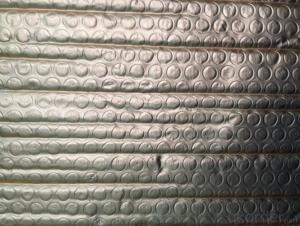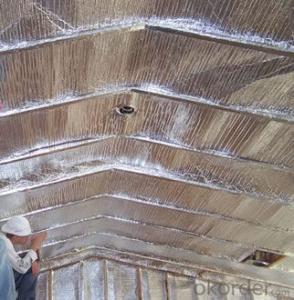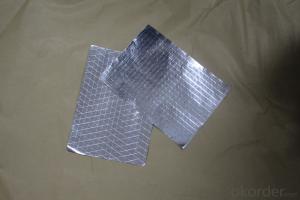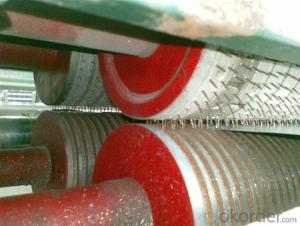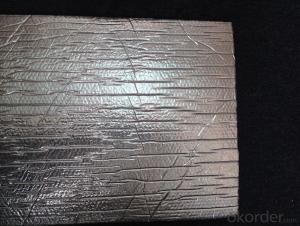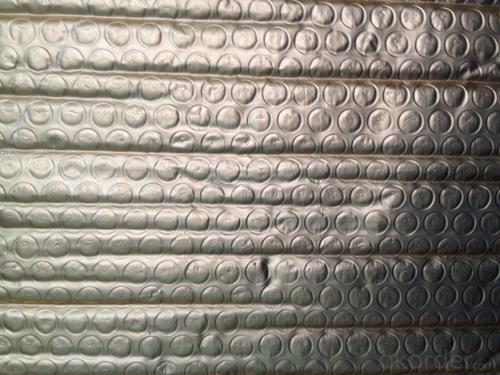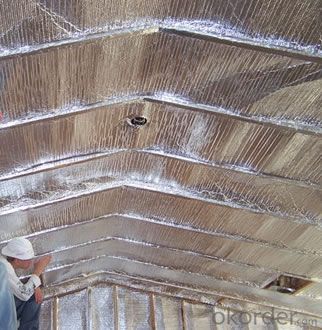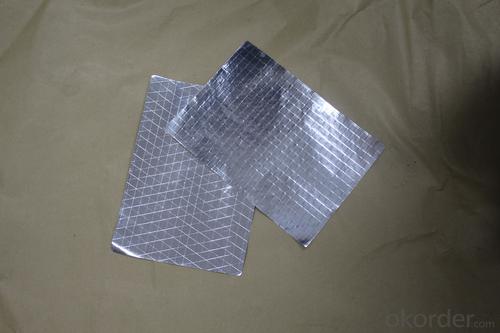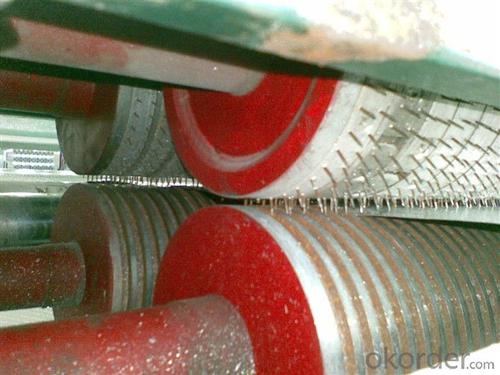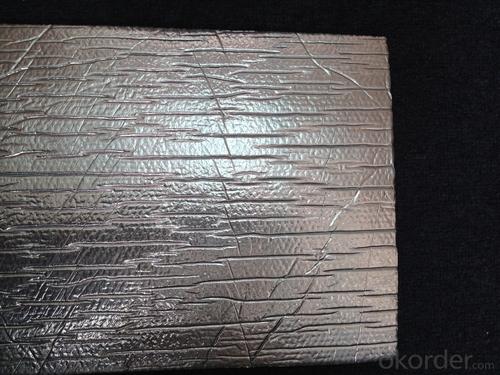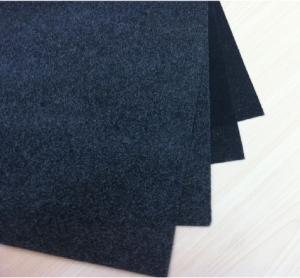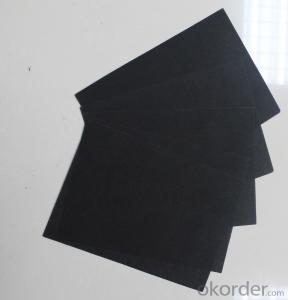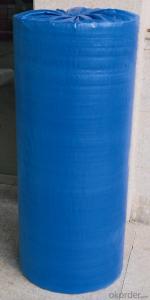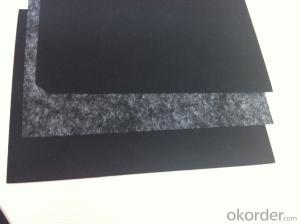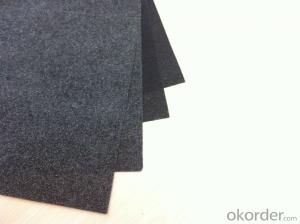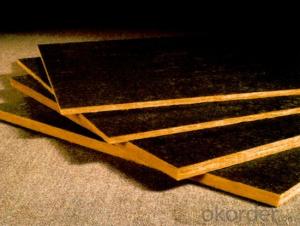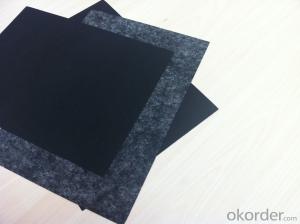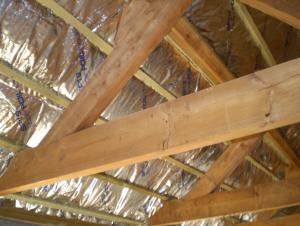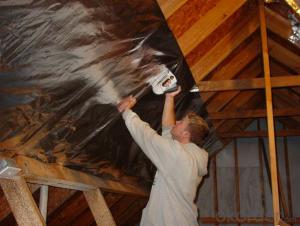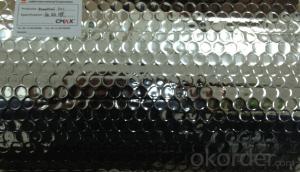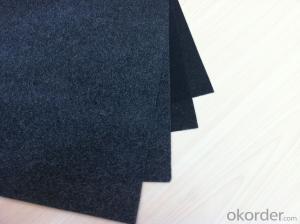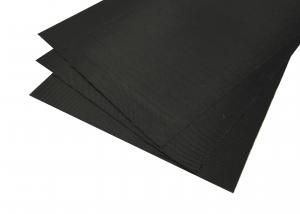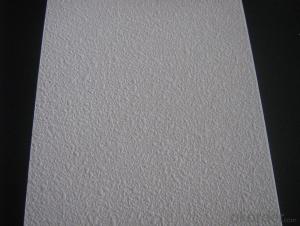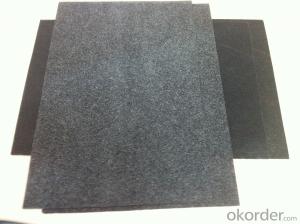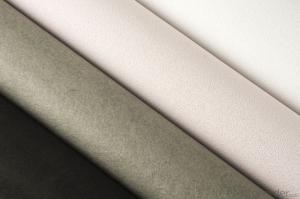Fiberglass Facing Flexible Ducts Bubble Aluminum
- Loading Port:
- China Main Port
- Payment Terms:
- TT OR LC
- Min Order Qty:
- -
- Supply Capability:
- -
OKorder Service Pledge
OKorder Financial Service
You Might Also Like
Application:
1,Building Thermal Insulation Material
(1),Roof,Underlay,Under Concrete & floor Insulation;
(2),Attic,Crawl Space,Stud Wall ,Metal Frame Building Insulation.
2,Wrapping
(1),Protective coatings of ventilating pipe,HVAC Duct & Pipe;
(2),Shells of air conditioner and water heater.
Feature:
1), Waterproof, heavy duty, clean, light, flexible, non-absorbent surface
2), Fire resistant & antiglare
3), Recyclable, environmentally friendly
4), Effective in extreme temperatures both hot and cold
5), Easily install, cut, stapled, nailed or glued into place
6), Safe to handle with no special clothing or breathing Equipment
Feature:
1), Waterproof, heavy duty, clean, light, flexible, non-absorbent surface
2), Fire resistant & antiglare
3), Recyclable, environmentally friendly
4), Effective in extreme temperatures both hot and cold
5), Easily install, cut, stapled, nailed or glued into place
6), Safe to handle with no special clothing or breathing Equipment
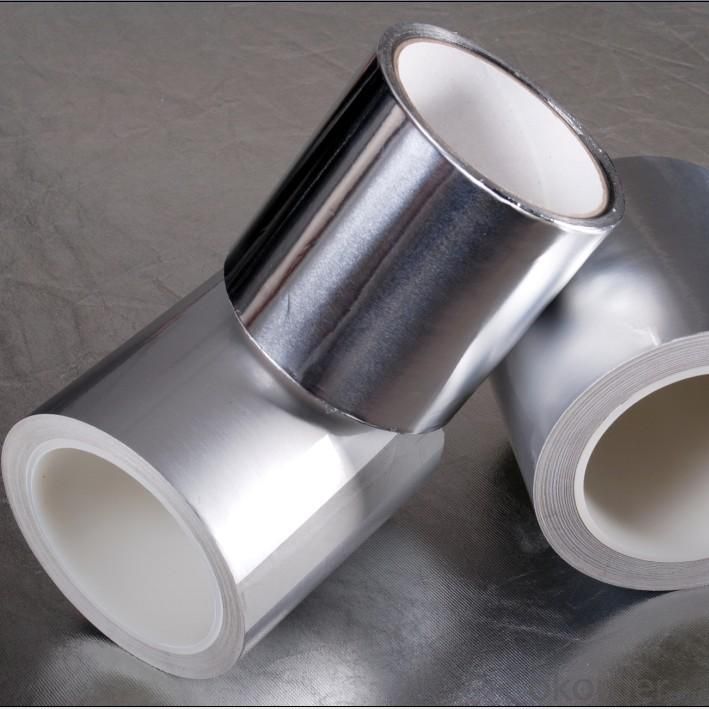
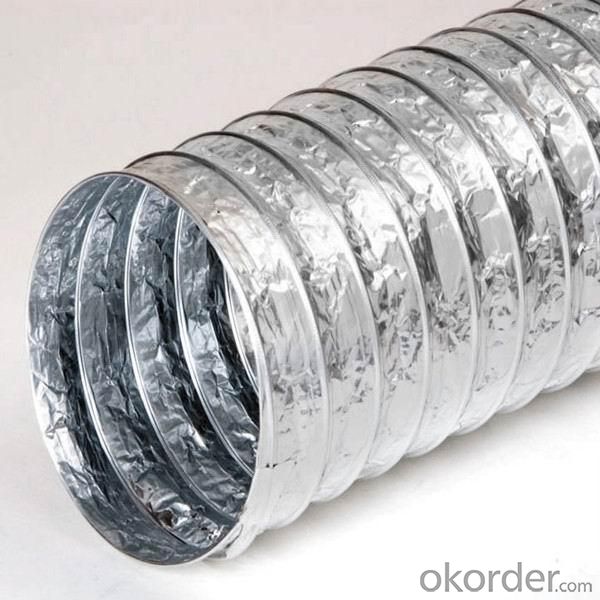
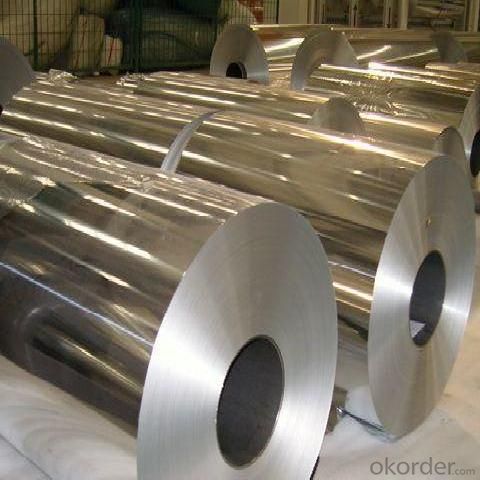
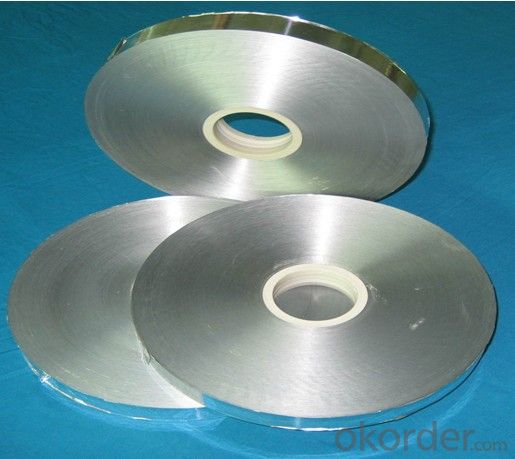
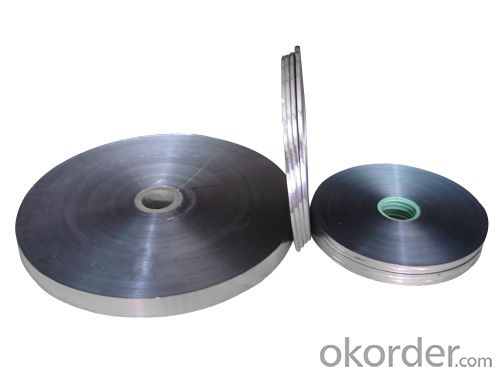
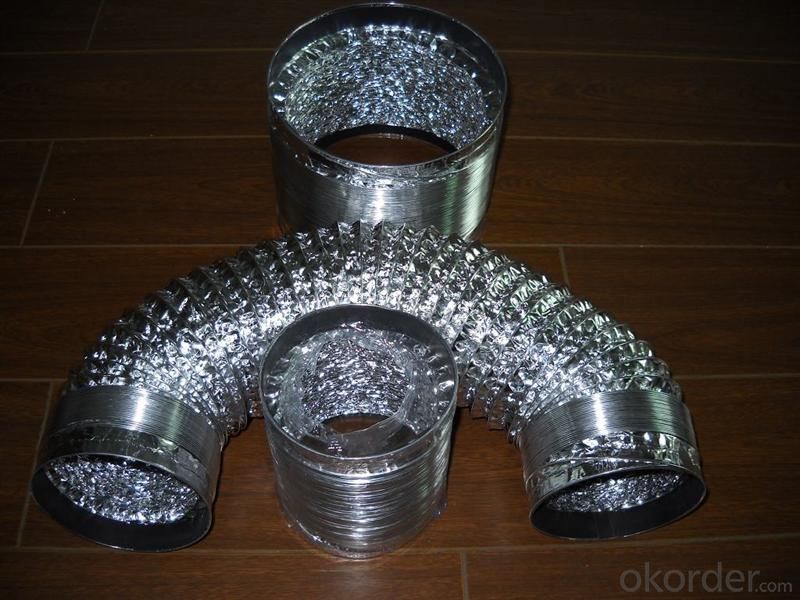
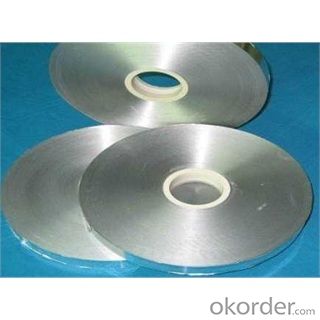
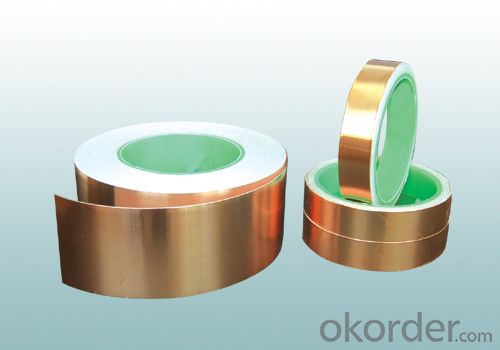
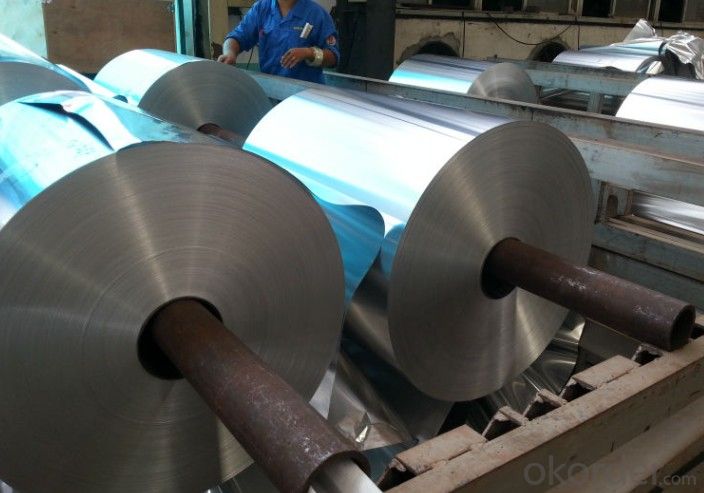
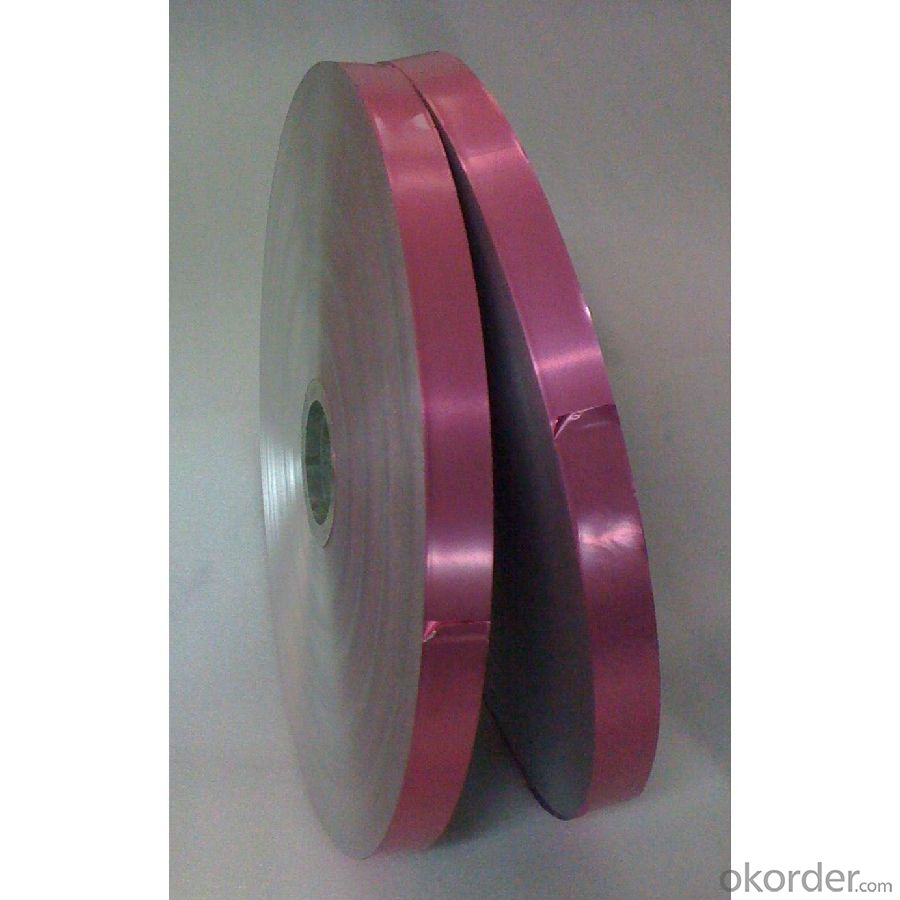
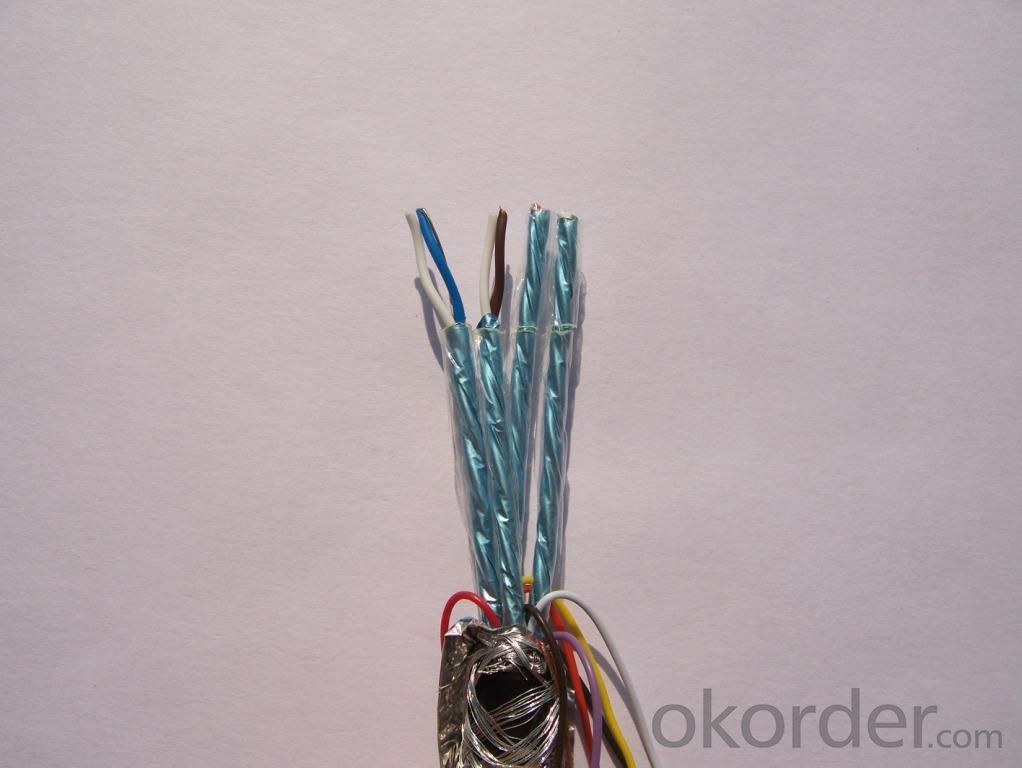
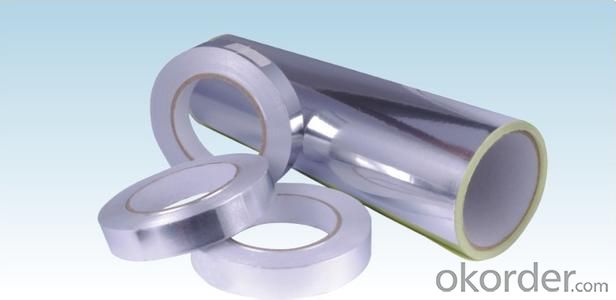
- Q: This question asks about the ease of cleaning black fiberglass tissue.
- <p>Black fiberglass tissue is relatively easy to clean, but it requires some care. It can be wiped down with a damp cloth and mild detergent to remove dirt and grime. However, avoid using harsh chemicals or abrasive materials as they can damage the surface. Regular cleaning helps maintain its appearance and longevity. It's also important to dry the surface thoroughly after cleaning to prevent any water damage or mold growth.</p>
- Q: The question asks if it is safe to use black fiberglass tissues to clean car windows without causing scratches.
- <p>Yes, you can use black fiberglass tissues to clean your car windows without scratching them. These tissues are designed to be non-abrasive and gentle on surfaces, making them suitable for cleaning windows without causing damage. However, it's always a good idea to test a small, inconspicuous area first to ensure there is no adverse reaction. Additionally, ensure that the tissues are clean and free from any debris that could potentially scratch the glass.</p>
- Q: What are the chemical characteristics of black fiberglass tissue?
- <p>Black fiberglass tissue, often referred to as black glass fiber cloth, is known for its high-temperature resistance, corrosion resistance, and electrical insulation properties. It is primarily composed of glass fibers that have been treated with a black resin to give it color and additional properties. The chemical properties include resistance to alkalis, acids, and many organic solvents. It does not conduct electricity and has low thermal conductivity, making it suitable for thermal insulation. The black fiberglass tissue is also non-flammable and has good mechanical strength, which makes it useful in various industrial applications where these properties are beneficial.</p>
- Q: What distinguishes black fiberglass from other fiberglass types?
- <p>Black fiberglass is a specific type of fiberglass that is dyed black, which gives it a distinct appearance and makes it suitable for applications where a darker color is desired. Other types of fiberglass can be clear, white, or colored, depending on the application and aesthetic preferences. The primary difference is in the color and possibly the additives used to achieve the color. Functionally, they all serve the same purpose of reinforcing materials, providing strength and stability, but the choice of color can affect heat absorption, visibility, and the overall look of the final product.</p>
- Q: Roof waterproof general use of what materials
- One, asphalt 1. Oil asphalt paper linoleum: three felt four oil or two carpets three oil stack construction. 2. Glass fiber cloth asphalt linoleum, glass fiber felt asphalt felt: cold asphalt binder or hot asphalt binder paste construction.
- Q: This question asks for guidance on selecting a dependable supplier for black fiberglass tissues, a material used in various industries.
- <p>To choose a reliable supplier of black fiberglass tissues, consider the following: Check their industry reputation and customer reviews. Ensure they have the necessary certifications and quality control measures in place. Evaluate their product quality by requesting samples. Assess their delivery times and reliability. Consider the supplier's financial stability and history. Look for a supplier that offers good customer service and after-sales support. It's also important to compare prices and negotiate terms that fit your budget and requirements.</p>
- Q: Is it possible to recycle black fiberglass materials without causing damage to them?
- <p>Yes, black fiberglass tissues can be recycled without damaging them, but the process requires specific methods. Specialized facilities are equipped to handle the recycling of fiberglass materials, including colored ones. They use techniques such as shredding and melting to separate the glass fibers from other components and reuse them in new products. It's important to note that not all recycling facilities may accept black fiberglass due to the dye, which can complicate the recycling process. Proper segregation and recycling guidelines should be followed to ensure the materials are handled correctly and without damage.</p>
- Q: Is it permissible to use black fiberglass tissue in the construction or components of food processing equipment?
- <p>Black fiberglass tissue is not typically used in food processing equipment due to concerns about food safety and contamination. Fiberglass can potentially shed particles that could contaminate food products. Instead, food processing equipment usually employs materials that are food-grade and non-reactive, such as stainless steel, which is both durable and safe for contact with food. It's crucial to use materials approved for food contact to ensure the safety and quality of the food products.</p>
- Q: This question asks about the proper storage methods for black fiberglass paper.
- <p>To store black fiberglass paper, follow these guidelines: Keep it in a cool, dry place away from direct sunlight and moisture. Ensure the storage area is well-ventilated to prevent the buildup of humidity. Store the paper on flat surfaces to avoid bending or creasing. Use protective coverings like plastic sheets to shield the paper from dust and contaminants. If stacking, do not overload as it may cause the bottom layers to compress and damage. Label the storage area clearly to indicate the contents and check regularly for any signs of deterioration.</p>
- Q: Can black fiberglass tissue be utilized effectively as a material for filters?
- <p>Yes, black fiberglass tissue can be used as a filter material. It is known for its high tensile strength and resistance to chemicals, making it suitable for air and liquid filtration applications. However, it's important to note that fiberglass may not be suitable for all types of filtration due to potential health risks associated with inhalation of fibers and the need for specific conditions to prevent degradation. It is often used in industrial settings for filtering particulates and in HVAC systems. Always ensure that the use of fiberglass tissue complies with safety standards and the specific requirements of the filtration task at hand.</p>
Send your message to us
Fiberglass Facing Flexible Ducts Bubble Aluminum
- Loading Port:
- China Main Port
- Payment Terms:
- TT OR LC
- Min Order Qty:
- -
- Supply Capability:
- -
OKorder Service Pledge
OKorder Financial Service
Similar products
Hot products
Hot Searches
Related keywords
